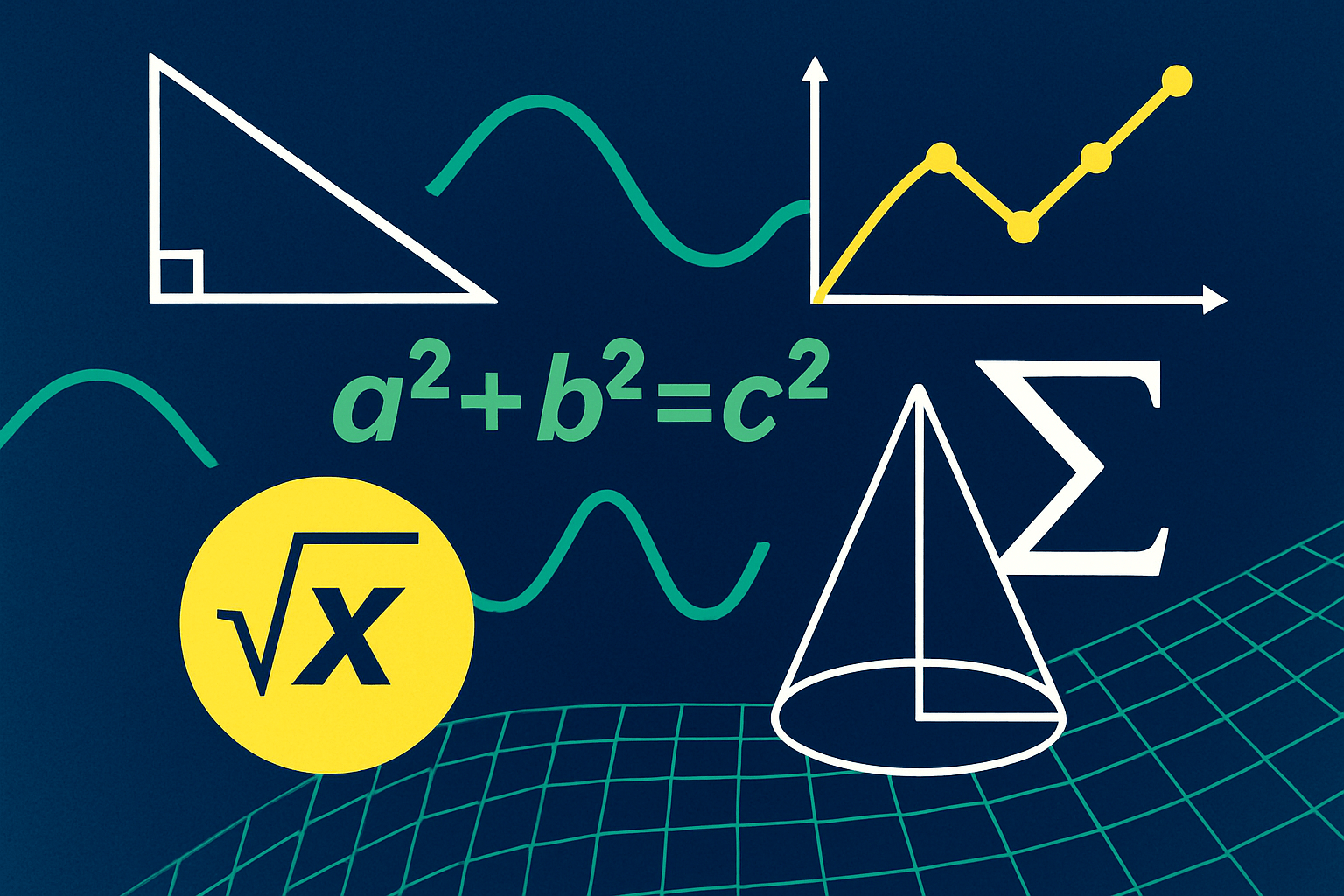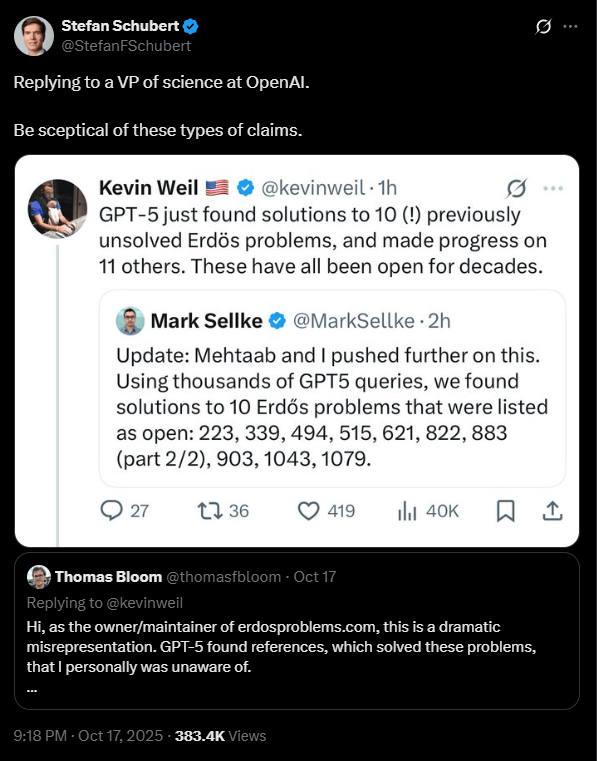Leading OpenAI researcher announced a GPT-5 math breakthrough that never happened

OpenAI researchers recently claimed a major math breakthrough on X, but quickly walked it back after criticism from the community, including Deepmind CEO Demis Hassabis, who called out the sloppy communication.
It started with a now-deleted tweet from OpenAI manager Kevin Weil, who wrote that GPT-5 had "found solutions to 10 (!) previously unsolved Erdős problems" and made progress on eleven more. He described these problems as "open for decades." Other OpenAI researchers echoed the claim.
The wording made it sound like GPT-5 had independently produced mathematical proofs for tough number theory questions - a potential scientific breakthrough and a sign that generative AI could uncover unknown solutions, showing its ability to drive novel research and open the door to major advances.

Mathematician Thomas Bloom, who runs erdosproblems.com, pushed back right away. He called the statements "a dramatic misinterpretation," clarifying that "open" on his site just means he personally doesn't know the solution - not that the problem is actually unsolved. GPT-5 had only surfaced existing research that Bloom had missed.
Deepmind-CEO Demis Hassabis called the episode "embarrassing", and Meta AI chief Yann LeCun pointed out that OpenAI had basically bought into its own hype ("Hoisted by their own GPTards").
The original tweets were mostly deleted, and the researchers admitted their mistake. Still, the incident adds to the perception that OpenAI is an organization under pressure and careless in its approach. It raises questions about why leading AI researchers would share such dramatic claims without verifying the facts, especially in a field already awash in hype, with billions at stake. Bubeck knew what GPT-5 actually contributed, but still used the ambiguous phrase "found solutions."
GPT-5 is proving useful as a literature review assistant
The real story here is getting overshadowed: GPT-5 actually proved useful as a research tool for tracking down relevant academic papers. This is especially valuable for problems where the literature is scattered or the terminology isn't consistent.
Mathematician Terence Tao sees this as the most immediate potential for AI in math—not solving the toughest open problems, but speeding up tedious tasks like literature searches. While there have been some "isolated examples of progress" on difficult questions, Tao says AI is most valuable as a time-saving assistant. He has also said that generative AI could help "industrialize" mathematics and accelerate progress in the field. Still, human expertise is crucial for reviewing, classifying, and safely integrating AI-generated results into real research.
AI News Without the Hype – Curated by Humans
As a THE DECODER subscriber, you get ad-free reading, our weekly AI newsletter, the exclusive "AI Radar" Frontier Report 6× per year, access to comments, and our complete archive.
Subscribe nowAI news without the hype
Curated by humans.
- Over 20 percent launch discount.
- Read without distractions – no Google ads.
- Access to comments and community discussions.
- Weekly AI newsletter.
- 6 times a year: “AI Radar” – deep dives on key AI topics.
- Up to 25 % off on KI Pro online events.
- Access to our full ten-year archive.
- Get the latest AI news from The Decoder.